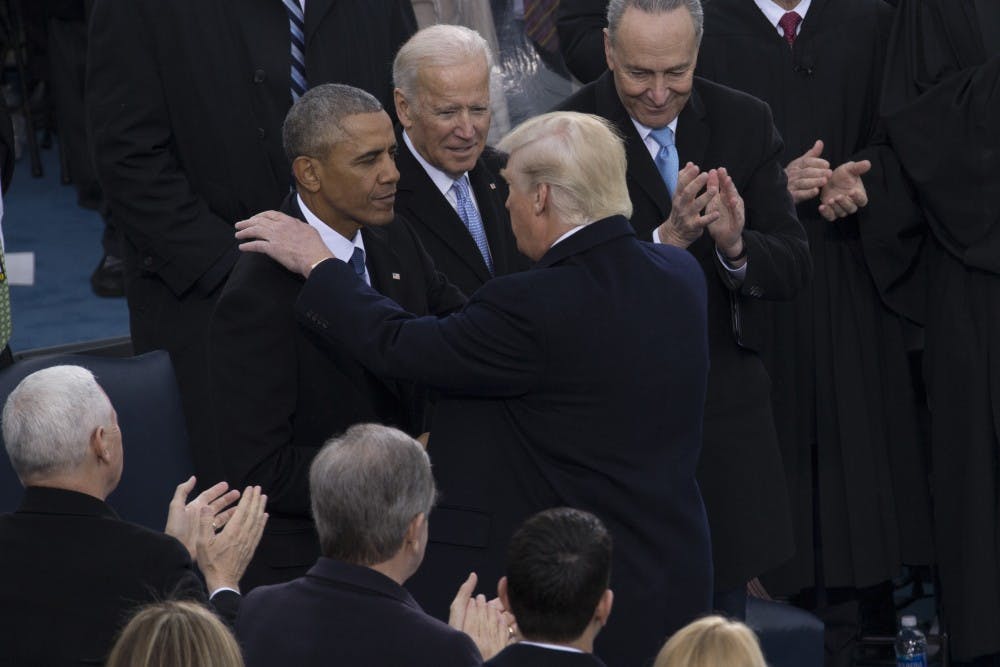Since moving to Nigeria, I have been asked one question repeatedly: “What is it like to be black in America?” In all honesty, I have been reluctant to reply, not wanting to delve into the intricacies of race and respond in a manner that satisfies neither the questioner nor myself. Yet, at a time in which white nationalist rallies have manifested within a mile of my alma mater, an honest response is warranted.
It should surprise no one that recent events have had a significant impact on foreign perceptions of the African-American experience. Hope that the United States had risen above the racism and prejudice of the past — a notion spurred by the election of President Barack Obama — has been replaced by renewed cynicism, if not despair. The countless police shootings of unarmed black men and the election of a U.S. President whose rhetoric has emboldened hate groups have left many convinced that the chasm between black and white Americans remains unchanged. Obama was the exception, as The Atlantic’s Ta-Nehisi Coates writes, because he “was able to offer white America…Something very few African Americans could — trust.”
But is such a feat truly remarkable? I think not. Indeed, such a remark reveals a frequent shortcoming in our racial discourse, a tendency to reduce our social relations to a constant and simplistic struggle between black and white Americans.
In large measure, my viewpoint stems from personal experience. It is always easier to trust “white America” when you have grown up alongside its children. To be clear, my experience was not free of bigotry and prejudice. I quickly discovered that blackness is more often associated with athleticism than intellect, interest in black culture does not necessarily denote an interest in the well-being of black people and even the most vocal critics of police brutality might cross the street to avoid passing a person of color at night. Yes, these experiences can be taxing but they never dominated my social interactions.
It is also worth noting that prejudice and racial animosity transcend American social relations. In India, instances of prejudice and violence towards Africans are just as common. Last year, an angry mob stripped and beat a Tanzanian student in retaliation for the death of a local woman, who had been killed in an automobile accident involving a drunk Sudanese driver earlier that day. Africans have encountered similar hostility in parts of China, where immigrants have increasingly been accused of threatening public safety. Even within Nigeria, one can occasionally hear remarks disparaging African-Americans as lazy and inclined toward criminality. Simply put, prejudice and intolerance are hardly exclusive to any one racial or ethnic group. To let fears of bigotry color one’s perception of entire groups of people is to live in a constant state of anxiety.
Admittedly, President Donald Trump’s political rise should give many cause for concern. It is not just that he is willing to exploit racial tension for political gain — several of his predecessors have done the same. What is most alarming is the president’s utter indifference towards revelations such that white nationalists and other hate groups feel vindicated by his remarks.
To some, this may appear to corroborate allegations that Trump’s ascension to the Oval Office was fueled by white resentment or racial animosity. I would argue the contrary. There was no shortage of Trump supporters willing to distance themselves from the President’s attacks against Muslims and Latinos, and I am inclined to take them at their word. Instead, his victory seemed to be attributable to an equally deplorable tendency — an unapologetic willingness to overlook his racist and xenophobic remarks in favor of vague promises to bring back jobs and restore American grandeur.
Sure, many minority voters found Trump’s antics appalling, but it is worth noting that despite referring to Mexicans as “rapists” and “murders,” and spending months on the campaign trail disparaging the inner-cities, minority voter turnout declined and Trump received more support from black and Latino voters than Republican presidential nominee Mitt Romney in 2012.
So where does this leave us?
Being a minority in any country has always been fraught with challenges — being black in America is no different. Still, one would be wrong to dismiss the social progress that the black community has made over the last half-century. How many of those who lived through the race riots of the 1960s can truly say they expected to witness the election of the United States’ first black president within their lifetimes?
Sure, there is still much work to be done. The violence which occurred in Charlottesville last week is a testament to the lengths which some will go to oppose social justice. While I can imagine this is distressing to the many minority students who are beginning a new school year, I would urge them to stay strong and be brave. Periods of social progress have always been followed by attempts to undermine them, and the “Unite the Right” march was nothing short of another ill-fated attempt to preserve the fading remnants of a bygone era.
Brandon Brooks is a former Opinion columnist for The Cavalier Daily.







